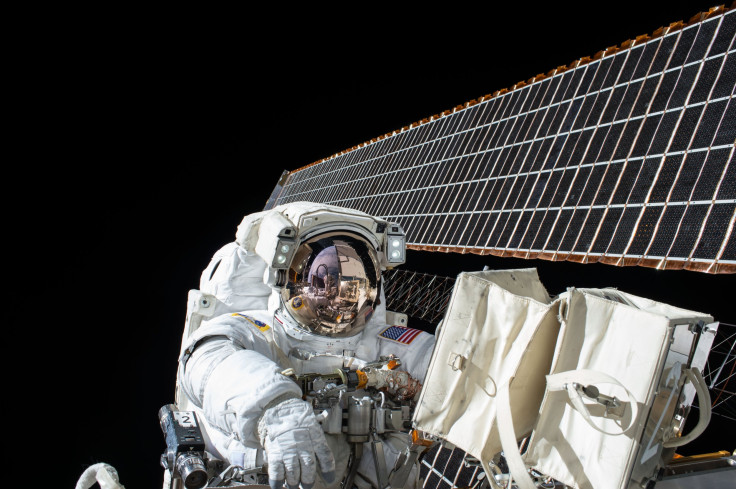JAXA Spacecraft Launch Live Stream: Watch The Cargo Ship Liftoff In Outerspace At NASA's International Space Station

NASA is preparing for lift off once again. The agency is scheduled to broadcast an unpiloted Japanese cargo spacecraft that will depart the International Space Station Friday morning.
The cargo spacecraft, Japan Aerospace Exploration Agency’s (JAXA) H-II Transport Vehicle-6, will be released by the station’s robotic arm commanded by the European Space Agency’s Flight Engineer Thomas Pesquet with support from NASA’s Expedition 50 Commander Shane Kimbrough. You can watch the NASA Orbital ATK launch here.
Transport Vehicle-6 is expected to move underneath and in front of the International Space Station and gather data for a week using a JAXA experiment which will “measure electromagnetic forces using a tether in low-Earth orbit,” a NASA statement read. The spacecraft will then be deorbited and safely deteriorate over the Pacific Ocean. Prior to its scheduled mission, Transport Vehicle-6 transported over 4.5 tons of experiments and supplies to the space station after its initial launch from the Tanegashima Space Station in southern Japan Dec. 9.
Despite the impression that most space missions conduct liftoff from the ground, the International Space Station is actually a large spacecraft orbiting the Earth. Astronauts live in the station that has housed people since 2000. It also holds a science lab that several other countries worked to build together and use. The station has provided important data and research that would be impossible to conduct on Earth, according to the NASA website.
British astronaut Tim Peake, who announced Thursday morning that he would be making a second mission with the European Space Agency and returning to the International Space Station, has praised the orbiting spacecraft as conducting important work.
“The work that is being done on board the space station is incredibly important and also tremendously exciting as well. It is only natural to want to return. The one thing you miss is the view of planet Earth, of course. It is the most spectacular thing you can possibly see,” Peake told Sky News.
© Copyright IBTimes 2025. All rights reserved.






















